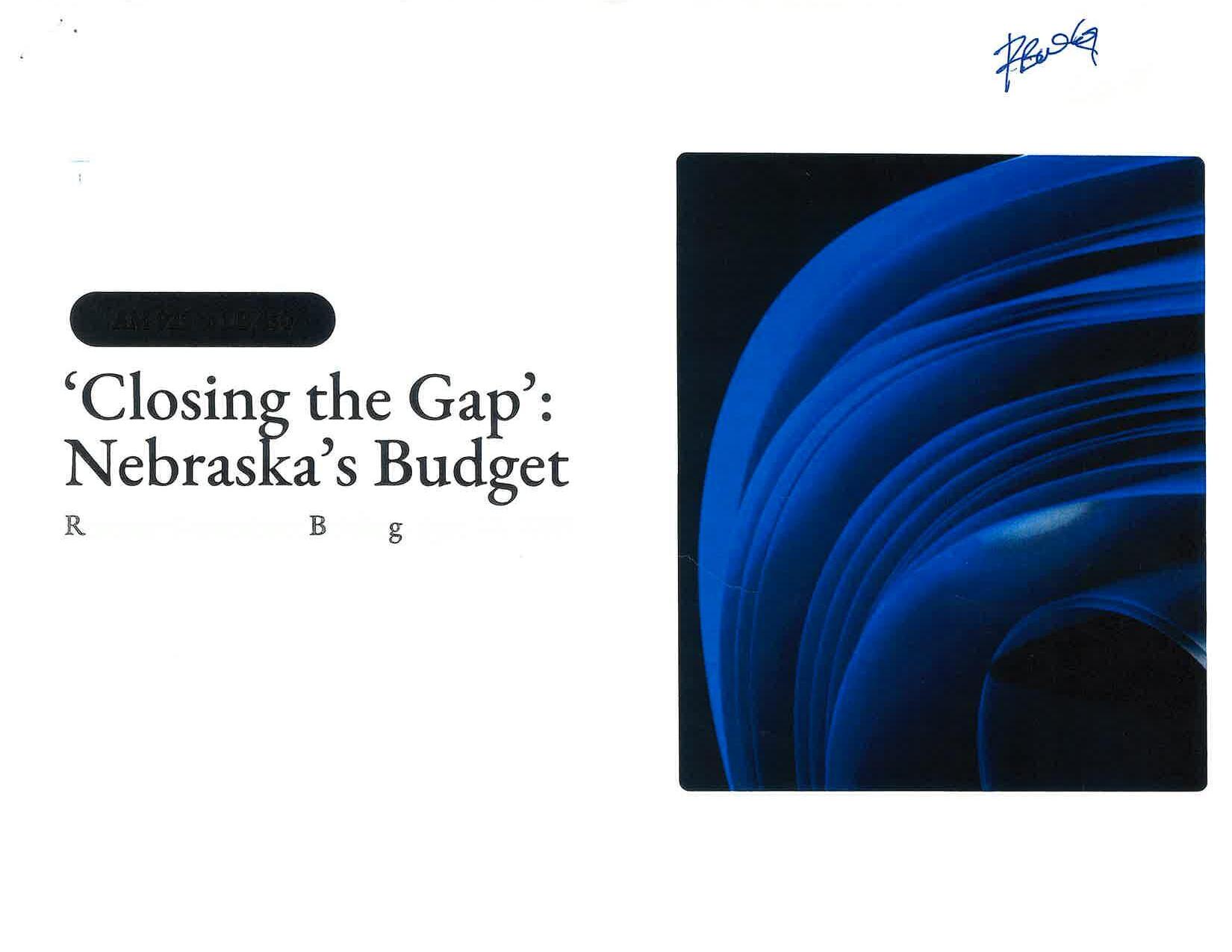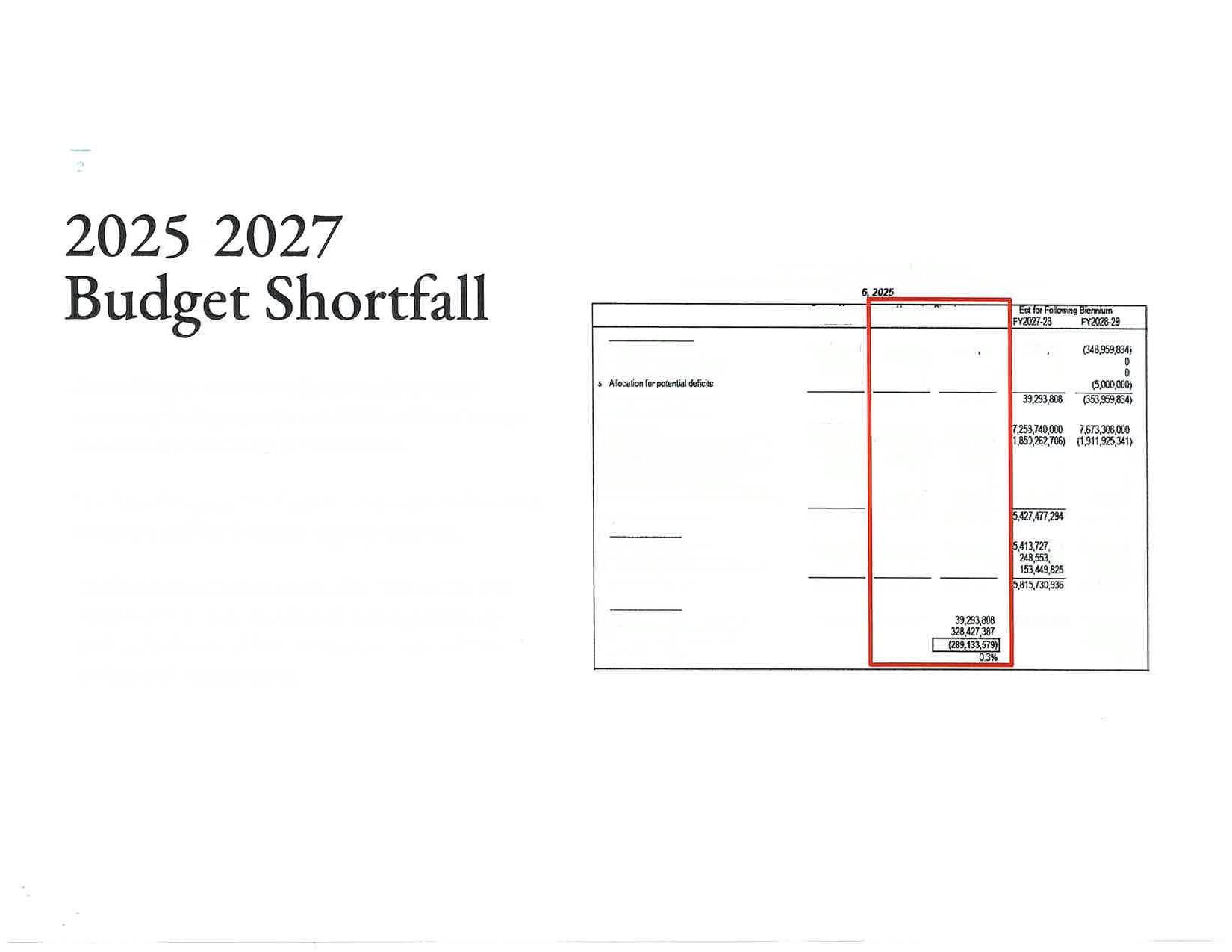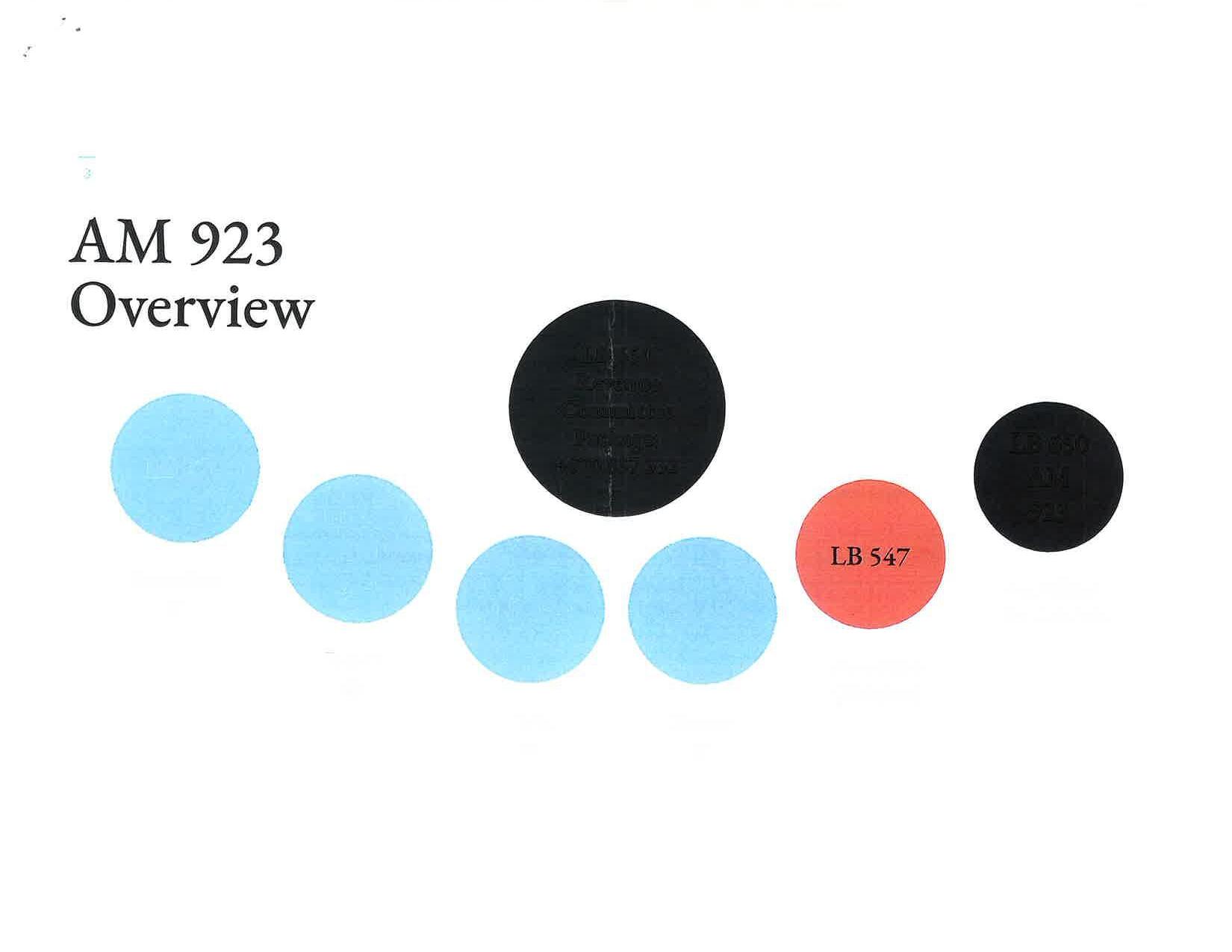109th Legislature, First Session April 11, 2025 - Bulletin 14
ITEMS OF INTEREST TO MUNICIPALITIES
Stories inside:
• LB 650: Revenue Committee Priority Bill amended on General File with AM923 supported by the League; LB 650 as amended was advanced to Select File
• LB 186: Entertainment district bill provisions passed by Legislature
• LB 36: Natural Resources package with battery recycling and endangered species mitigation bank provisions advanced to Select File
Select File
OnApril 11, LB 650 was debated on General File. The League opposed LB 650 as originally introduced but supports AM923 to LB 650, the Standing Committee Amendment to the bill. AM 923 was amended into LB 650 with 38 ayes, 1 nay, 6 present and not voting, and 4 excused and not voting. AM923 replaces the original provisions of LB 650. (Before AM923 was adopted, it was amended by AM1020 which does not affect municipalities.) LB 650 as amended was advanced to Select File with 36 ayes, 2 nays, 6 present and not voting, and 5 excused and not voting.
Elkhorn Sen. Brad von Gillern, Chair of the Revenue Committee, briefed Senators on April 10 about the provisions of AM923. Please review the handout given to Senators at the Revenue Committee briefing outlining the provisions of AM923;
the handout entitled “Closing the Gap: Nebraska’s Budget” is on pages 4-6 of this Bulletin . Although AM923 incorporates provisions of LB 458, the detrimental provisions of LB 458 are NOT included in AM923. In addition, provisions relating to the Sports Arena Facility Financing Act and Good Life Districts also are not included in AM 923. With adoption of AM923, the provisions of LB 270 were incorporated into LB 650. LB 270 was introduced by Bellevue Sen. Victor Rountree on behalf of the League, specifically at the request of Papillion Mayor David Black. As noted in the Revenue Committee handout, “LB 270 would allow an individual designated by a municipality to review sales and use tax information to notify the Auditor of Public Accounts of any suspected sales and use tax reporting irregularities and discrepancies.”
LB 186: Entertainment district bill provisions passed by Legislature
OnApril 10, the Legislature passed LB 113, which contains the provisions of the entertainment district bill (LB 186) introduced by Sen. Robert Dover. The Legislative voted 33-13 to pass the bill.
The language contained in LB 113 changes the definition of commons area within entertainment districts. With the changes, a common area means an area:
1. Within an entertainment district designated by a local governing body;
2. Shared by authorized licensee with entertainment district licenses;
3. Abutting the licensed premises of the licensees;
4. With reasonable safety measures in place to protect pedestrians, including signage, lighting, and reduced motor vehicle speeds when motor vehicles will be near pedestrians;
5. With a prohibition on the carrying of open alcoholic liquor containers and the consumption of alcoholic liquor on any open street or highway except when necessary to cross at a designated crosswalk. These provisions apply to all classes of municipalities. One of the most significant changes to entertainment districts is that common areas will no longer need to be closed to vehicular traffic.
The bill was delivered to the Governor for his signature or veto.
Sen. R. Brad von Gillern District 4
LB 36: Natural Resources package with battery recycling and endangered species mitigation bank provisions advanced to Select File
OnApril 9, the Legislature advanced to select file LB 36, as amended by AM635. The amendment creates a “Christmas tree” package that includes the language of six bills heard before the Natural Resources Committee. Interestingly, the original LB 36 is not one of the bills included in the package. Bills included in the package of LB 36 are:
• LB 309, the Safe Battery Collection and Recycling Act.
• LB 590 , Authorize the Nebraska Department of Transportation to establish and operate a mitigation bank in areas where an endangered species habitat may exist.
• LB 344 would amend Nebraska law pertaining to ground water allocations for municipalities and municipal-served and self-served commercial or industrial users in the fully appropriated and over-appropriated areas of the state.
• LB 459 would create the Home Weatherization Clearinghouse
• LB 562 would increase to the caps for fees charged by the Game and Parks Commission
• LB 480 would give the Game and Parks Commission the authority to administer and carry out additional projects under the Water Recreation Enhancement Act at Lake McConaughy, Lewis and Clark State Recreation Area, and Niobrara State Park.
LB 309 and LB 590 were supported by the League and the League testified neutral on LB 344 to provide background information on negotiation held in 2003/2004.
LB 309 introduced by Sen. Jana Hughes as amended into LB 36 adopts would require that beginning Jan. 1, 2028, no producer or retailer may sell, offer for sale, or distribute for sale in Nebraska, certain batteries or battery-containing products unless the producer of the covered battery or battery-containing product is identified and is a member of a battery stewardship organization (BSO) operated under a battery stewardship plan (Plan) approved by the Department of Environment and Energy (DEE). The BSO Plan must include duties and responsibilities to provide for collection sites, annual reports, and provide for collecting all costs associated with implementing the plan.
LB 590 introduced by Sen. Mike Moser from Columbus would give the Nebraska Department of Transportation the authority to operate a mitigation bank or in-lieu fee program by contracting with public and private parties to meet its
2025
LEGISLATIVE SESSION
mitigation obligations for endangered species and other environmental impacts under state and federal law. The current use of a similar concept for wetlands mitigation has been very successful in expediting transportation projects.
LB 344 introduced by Sen. Tom Brandt from Plymouth would replace an existing law and a law currently on the books set to take effect in 2026 that set the parameters of how municipal water use can be regulated in a Natural Resources District Integrated Management Plan (IMP) in a fully or over appropriated basin. LB 344 would exempt most municipal water use from potential regulation in an IMP except beginning in 2026 that any NEW or EXPANDED customer with an annual use in excess of 25 million gallons annually could be subject to regulation under an IMP. However, LB 344 also limits the IMP regulatory scope to some reporting and potential mitigation of the “consumptive” water use by the customer which would allow some credit for wastewater flow and other returns to the system.
Municipal water use has largely been exempted from IMP regulation for 20 years as a result of a negotiated measure adopted in 2005. However, this exemption is set to expire in January 2026. Under current law, the exemption will be replaced by an exemption from IMP regulation for municipal water use based on the highest use in the last 20 years and ALL municipal water use over that amount could be subject to regulation and mitigation requirements in an IMP. Also, the current law does not limit the potential mitigation to consumptive use.









